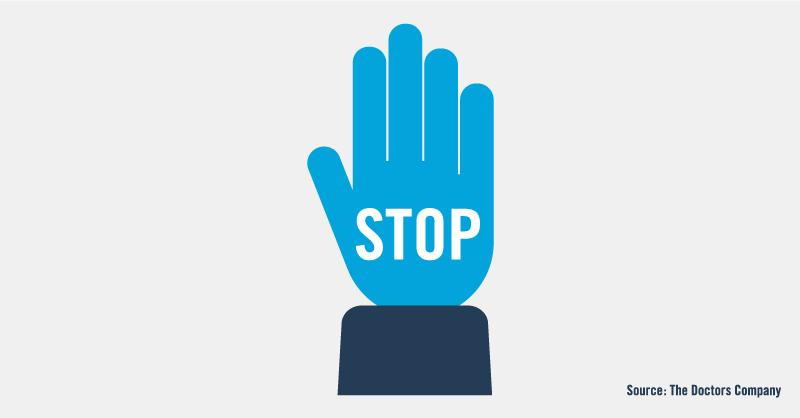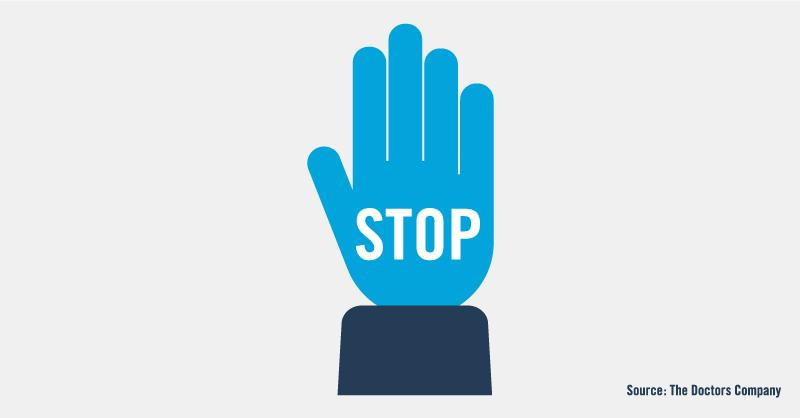
 A successful and highly-respected pediatrician with an unblemished record over decades of practice learns of a HIPAA breach by a member of his clerical staff. After an investigation reveals the employee is a repeat offender, she is terminated. Imagine the doctor’s reaction when the employee’s attorney not only initiates a wrongful termination suit, but also alleges retaliation, claiming the employee rebuffed sexual advances from the doctor.
A successful and highly-respected pediatrician with an unblemished record over decades of practice learns of a HIPAA breach by a member of his clerical staff. After an investigation reveals the employee is a repeat offender, she is terminated. Imagine the doctor’s reaction when the employee’s attorney not only initiates a wrongful termination suit, but also alleges retaliation, claiming the employee rebuffed sexual advances from the doctor.
To gain additional leverage, the former employee’s attorney submits a complaint of sexual harassment with the medical board and has the plaintiff file a criminal complaint for sexual battery. The attorney also sends a letter to the medical executive committee of the principal hospital where the doctor admits patients, resulting in a peer review investigation. Finally, the former employee blankets social media with an aggressive smear campaign.
This example demonstrates that healthcare providers are not immune from the growing number of reported incidents of alleged sexual harassment in the workplace. Accusers may be employees, patients, third-party vendors or visitors. Individuals alleged to have acted inappropriately may include co-workers, both supervisors and subordinates, professional staff—and even patients.
Repercussions of Harassment Claims
Shortly after complaints are filed, costly and potentially embarrassing investigations are often conducted by law enforcement, human resources departments, and administrative agencies. Depending on the nature and scope of the findings, serious adverse consequences and often irreparable harm to a person’s reputation may follow, including:
- Criminal prosecution.
- Civil litigation with the potential for substantial damages.
- Licensing board actions that may impose limitations on an individual’s continued privilege to pursue his or her profession.
Adopt and Enforce Zero Tolerance
Given the risks, heightened awareness, and increased scrutiny, healthcare practitioners and facilities are strongly encouraged to develop and consistently enforce a zero-tolerance policy. Protocols must be written, periodically reviewed, and updated as necessary, detailing:
- The types of conduct that will not be tolerated, regardless of the identity of the alleged perpetrator.
- A clear methodology for reporting claimed instances of wrongdoing.
- The process to be followed in investigating complaints, and rules that should be observed to help insure that confidentiality and due process are appropriately protected.
- Documentation to be completed and maintained.
- The range of sanctions, up to and including termination, for both employees and patients, should the allegations ultimately be determined to be true.
Staff should receive proper training as part of the on-boarding process of each new employee and on a regular basis thereafter. Offices should develop and retain attendance sign-in sheets of such training in the regular course of business to demonstrate, in the event of a subsequent problem, the good faith and due diligence as continuing efforts of the clinic, provider or facility to comply with federal and state requirements.
It is recommended that healthcare facilities, clinics and other professional offices institute a process of publishing their zero-tolerance policy towards harassment. This can be achieved in employee on-boarding documentation, professional employment contracts, conditions of treatment or admission, third-party vendor agreements, website notices, and even office signage.
Be Sure You’re Covered
Healthcare providers are also strongly encouraged to consult with their personal or corporate attorney to understand the potential financial risks of claims involving allegations of sexual harassment or misconduct. They should then confer with their insurance agent or broker to determine pro-actively what coverages might be available in their respective states to protect the provider in the event of such a claim.
Policy language and state regulatory requirements often vary from jurisdiction to jurisdiction. Most practitioners carry professional liability coverage in the event of a claim for medical malpractice. Not uncommonly, however, medical professional liability policies specifically exclude coverage for acts of sexual misconduct committed by a doctor against a patient. Depending upon the professional liability carrier, the doctor may be provided with a courtesy defense covering the costs of legal fees and expenses, but no payment for any indemnity incurred in the event of an adverse jury verdict.
It’s also prudent to consult with insurance brokers and agents about the availability of Employment Practices Liability Insurance (EPLI). EPLI may provide coverage for certain types of workplace harassment, which may include sexual misconduct involving the policy holder and an employee.
And finally, claims of inappropriate sexual behavior against a doctor or other licensed healthcare practitioner may result in administrative proceedings by a state medical board, or the privileges committee of a hospital or other facility regulated by The Joint Commission. Endorsements are widely available as part of medical professional liability policies to pay legal defense costs in the event of an investigation or subsequent disciplinary hearing.
